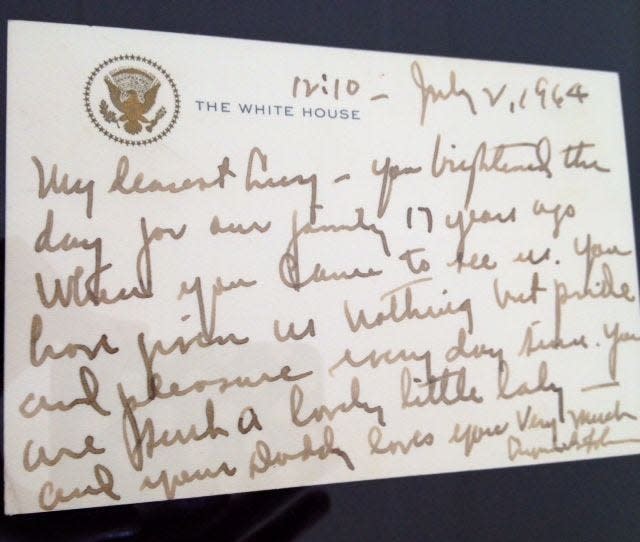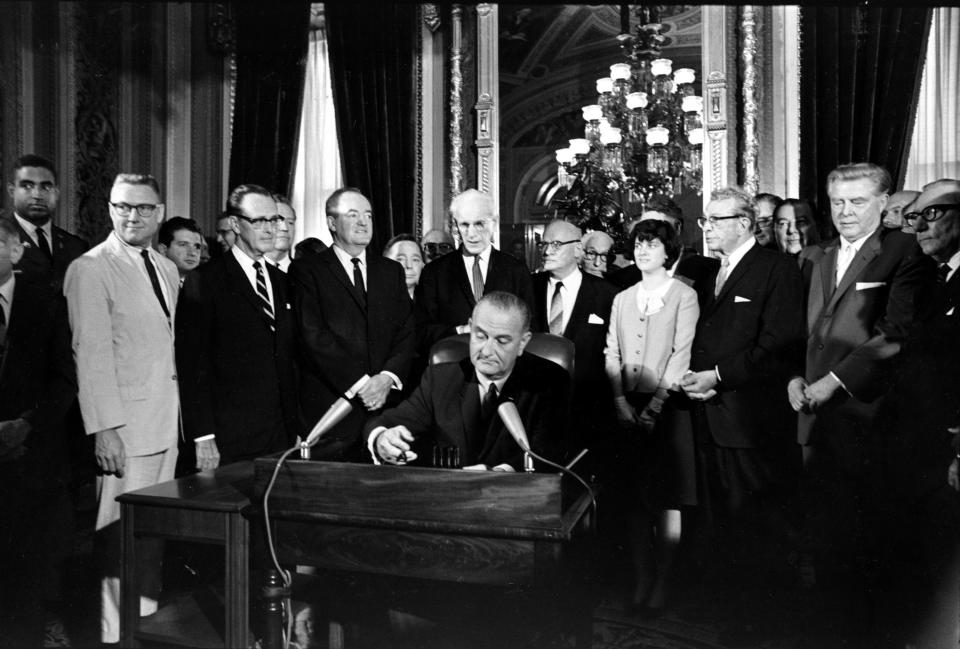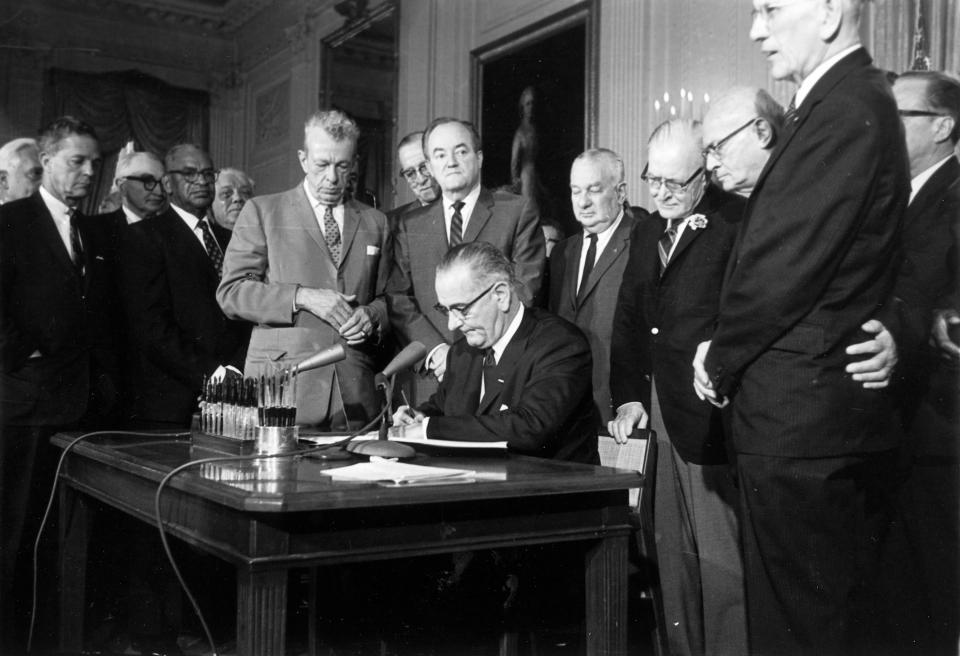Our dad, Lyndon Johnson, showed that civil rights could be bipartisan. Where is that now?

The civil rights movement has always been very personal to us.
We grew up witnessing Jim Crow laws. We saw separate schools, water fountains, toilets and restaurant entrances and segregated seating in public places.
We saw the indignity, inequity and pain of it all.
We remember our mother driving us from Texas to Washington, D.C., with our beloved Black housekeeper, Patsy. We stopped at a motel where the manager said there was room for our family to stay. That was until he saw that one of us was Black. He then told Mother there was no room for Patsy, and Mother responded, “If there’s no room for Patsy, there’s no room for us.”
We drove on. We were never prouder of our mother. It was all so very personal.
In his last year as vice president, Lynda accompanied our father to the sacred Civil War battle ground at Gettysburg. His words that day have guided us ever since: “Until justice is blind to color, until education is unaware of race, until opportunity is unconcerned with the color of men’s skins, emancipation will be a proclamation but not a fact.”
Legacy in legislation
Just over a year later on July 2, 1964, our father, President Lyndon Johnson, signed the Civil Rights Act on Luci’s 17th birthday. It was the best birthday present anybody ever gave anybody. Our father’s birthday note to Luci is the only handwritten letter she has from him. We believe he dated and timed that note because he wanted us to remember it wasn’t just Luci’s birthday – it was the birthday of justice for all.
The following year, on Aug. 6, 1965, Luci stood behind our father in the Capitol as he signed the Voting Rights Act into law. He explained to her that the votes of many brave men and women might cost them their seats in Congress. He wanted to thank them in the Capitol Rotunda, the hallowed halls where they served so history could record their sacrifice. He also wanted to honor the extraordinary men and women who could now come to Congress as a result of the bill's passage.

After the ceremony, Luci told our father, "I understand why you gave the first pen to Vice President (Hubert) Humphrey." But, she asked, “Why did you give the next pen to (Senate Republican leader) Everett Dirksen?"
Guilty until proven innocent: Lhamon and Biden undermine due process for college students
Always the schoolteacher, he explained, “I didn’t have to say or do a thing to convince those great civil rights leaders to be for that bill. They were already for it. But without Dirksen and his supporters, those great civil rights leaders and I would have only had a bill. We’d never have had a law. Dirksen deserved the pen because of his courage.”
In the 1960s, Democrats and Republicans stood together for social justice. It was the right thing then. It is the right thing today. Where are the courageous Republicans now?
Voting rights under attack
John Lewis was a young civil rights leader present when the Voting Rights Act was signed. He became one of the great leaders elected to Congress after its passage. His death last year left a hole in the heart of America. His sacrifice for Americans' right to vote regardless of the color of our skin has made us all better people.
H.R. 1, The For the People Act, and H.R. 4, the John Lewis Voting Rights Advancement Act, protect the right to vote for every qualified American. It is time we ensure they become the law of the land. There could be no more fitting tribute for liberty and justice for all.
USA Gymnastics: Simone Biles lived, flourished and suffered under the Olympic microscope
Sadly, the Supreme Court has gutted the heart of the Voting Rights Act. Across the country, legislators are writing bills to make it harder to vote – especially for disadvantaged groups like people of color, the poor and the elderly. We need legislation to make it easier for qualified voters to vote, not harder.
We cannot speak for our father in his death, as we dared not in his lifetime. But we believe, with all that is in us, that he would want us to speak now and loudly.

We urge Congress, regardless of party, to once more stand tall for social justice. Standing together as Americans sworn to uphold our constitutional ideals, Congress can ensure the rights of all eligible voters to exercise their most inalienable right. They can make sure the fight for democracy is not only heard but acted on.
Opinions in your inbox: Get the best insights and analysis delivered to your inbox
When Lyndon Johnson made his plea to the Congress and the nation to pass sweeping voting rights reform in 1965, he invoked the mighty anthem of the civil rights movement by declaring, "We shall overcome."
Fifty-six years later, we remember the words that still ring in our hearts – "We shall overcome.” We must!
Lynda Johnson Robb and Luci Baines Johnson are the daughters of President Lyndon B. Johnson.
You can read diverse opinions from our Board of Contributors and other writers on the Opinion front page, on Twitter @usatodayopinion and in our daily Opinion newsletter. To respond to a column, submit a comment to letters@usatoday.com.
This article originally appeared on USA TODAY: Civil Rights Act anniversary: Voting rights are still under attack

 Yahoo Movies
Yahoo Movies 
